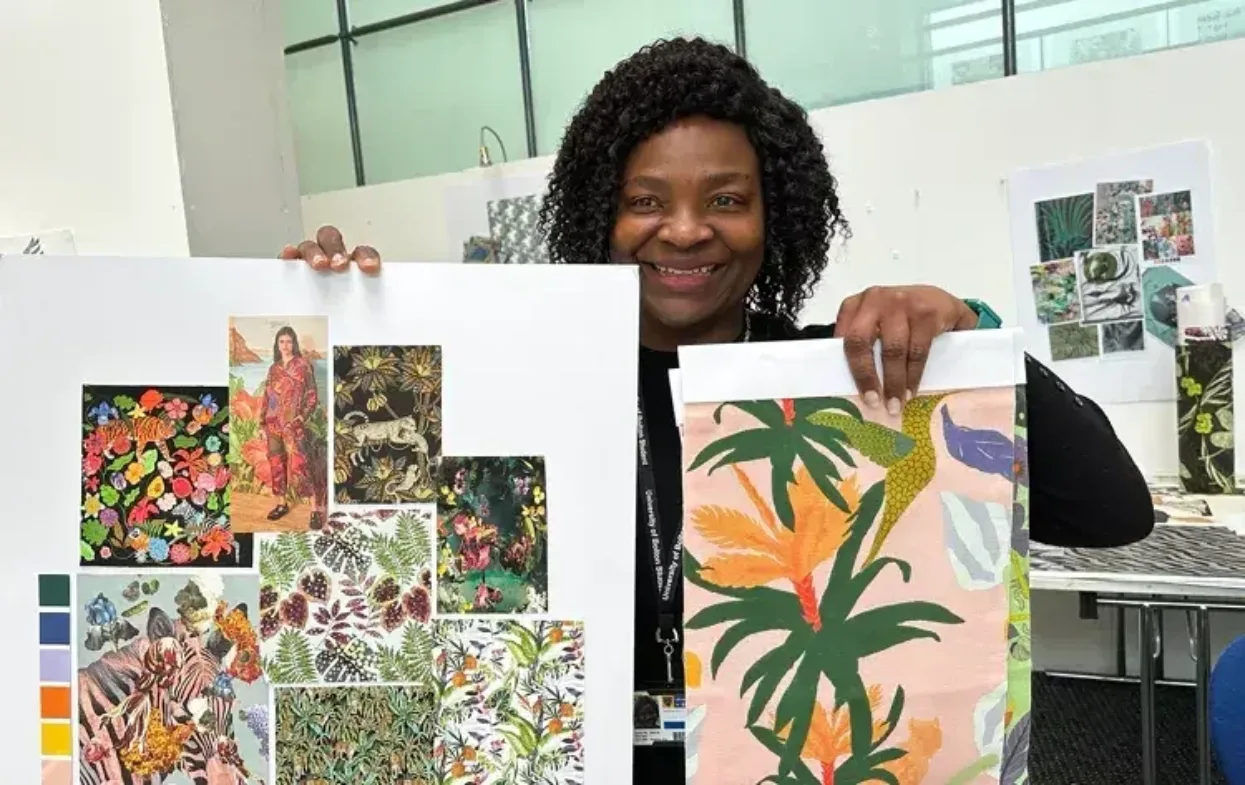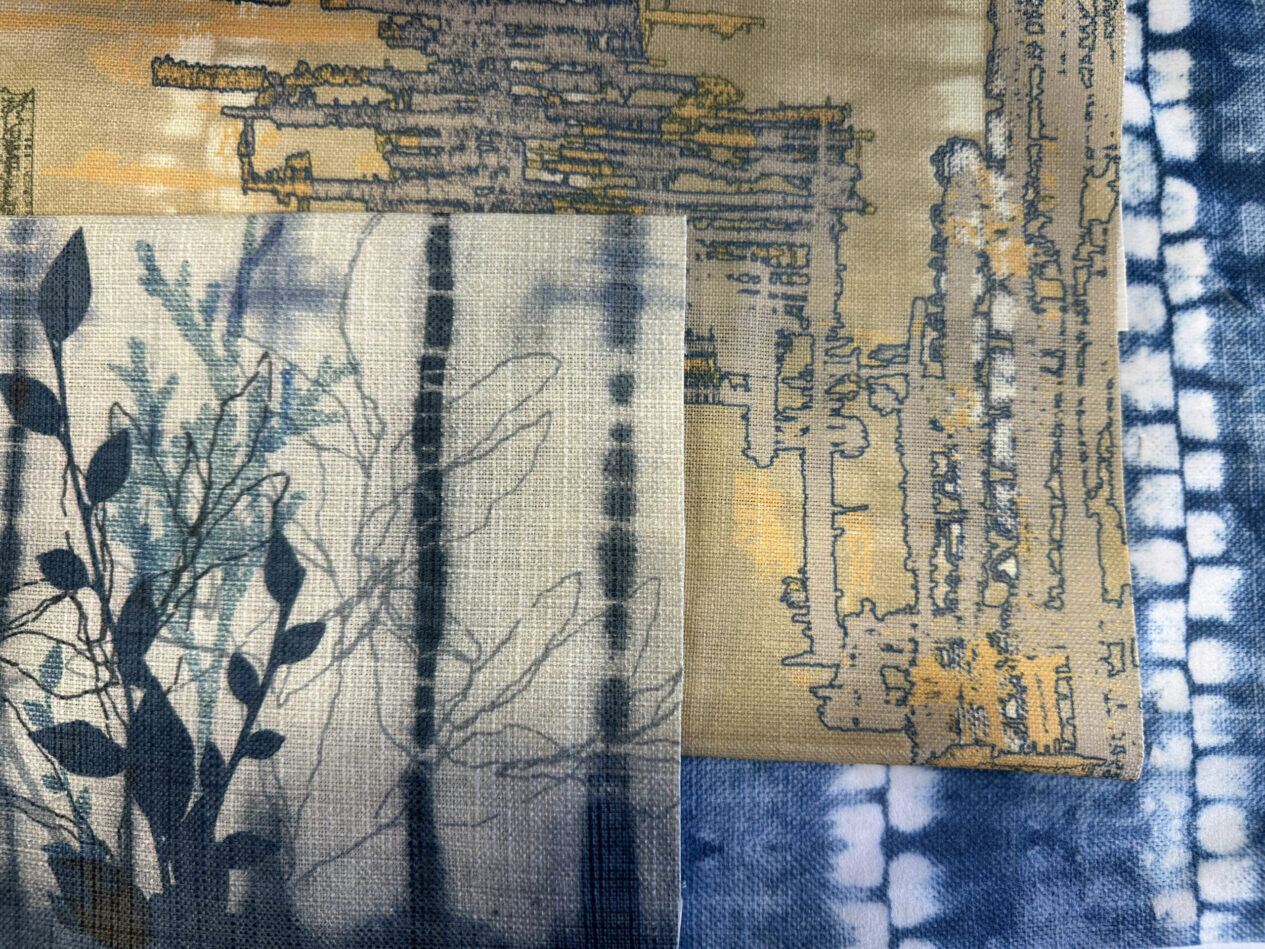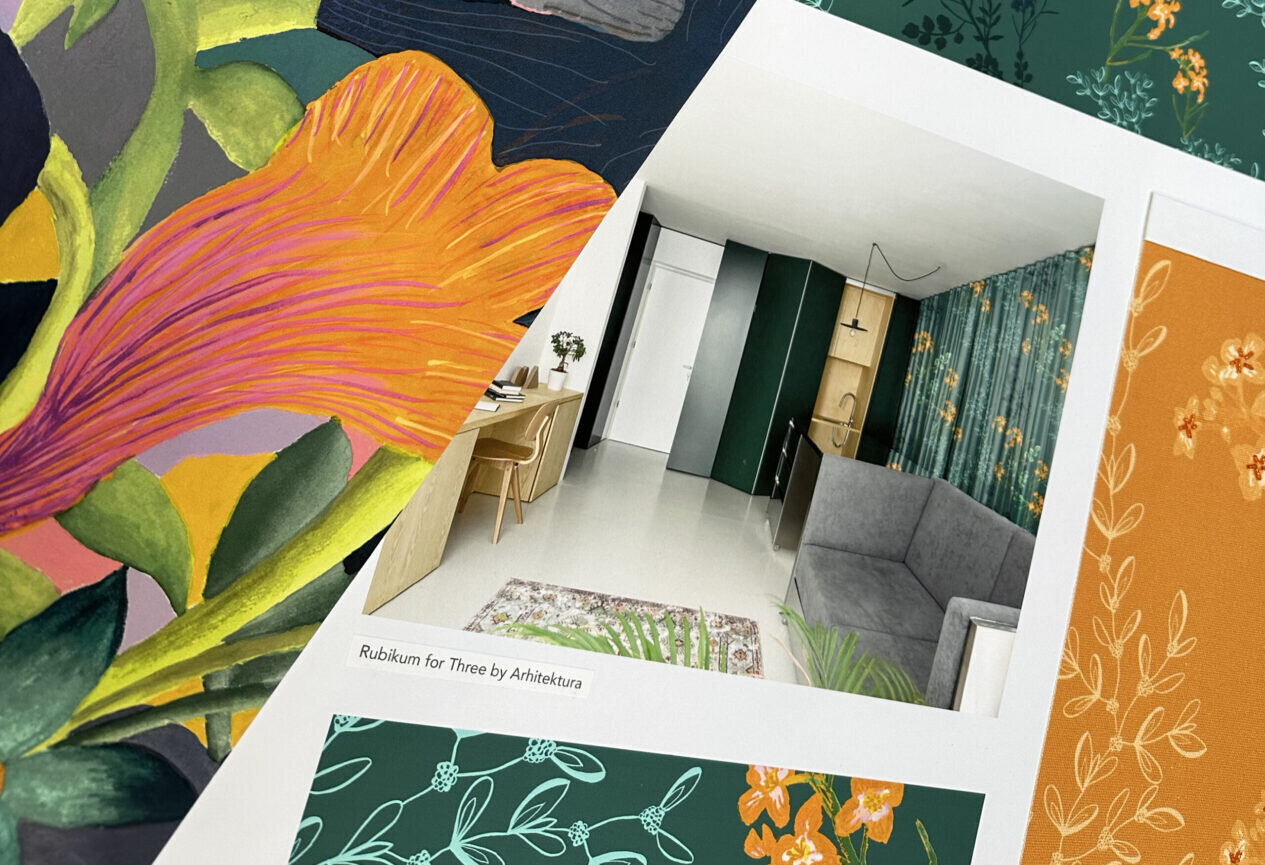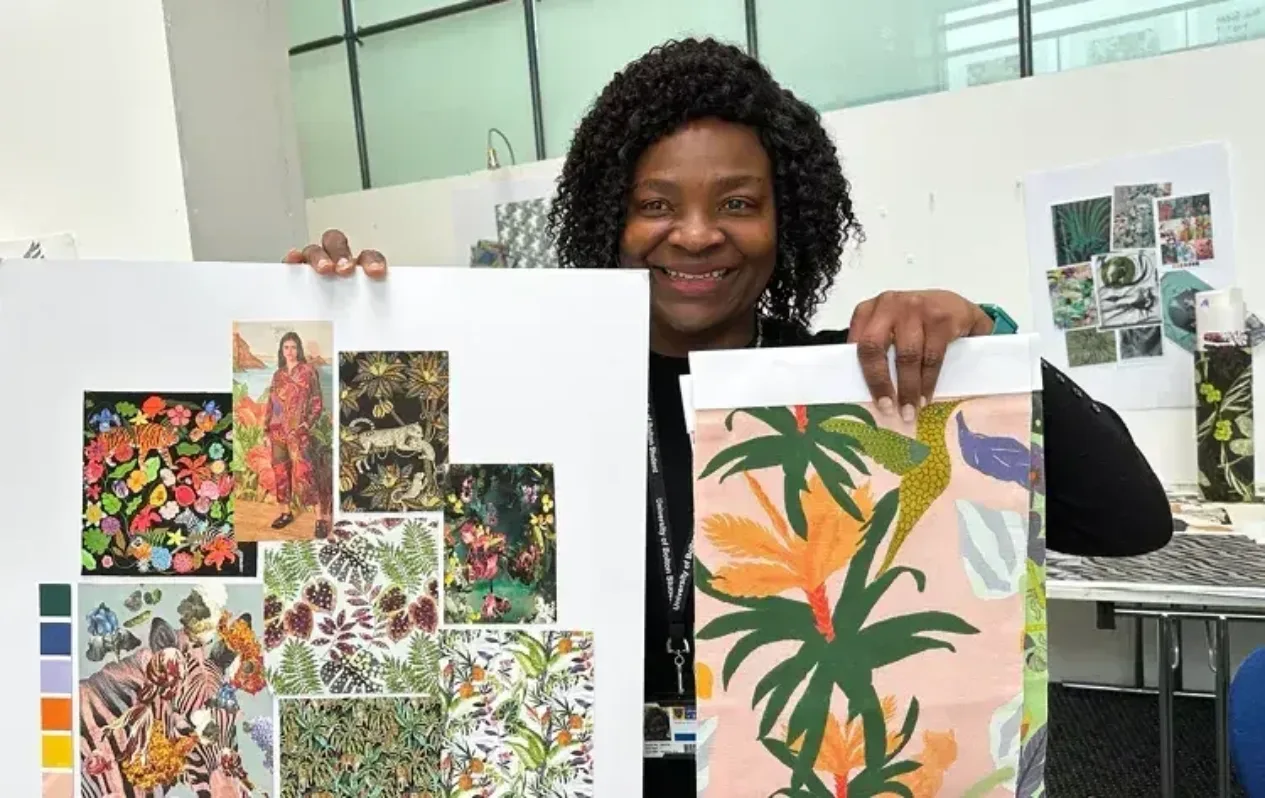
As digital natives the next generation have a huge role to play in the future of the textile printing industry. If we succeed in passing on our manufacturing heritage, and our knowledge freely, we will undoubtably succeed in creating a sustainable future for the textiles industry where creativity, technology and print thrive.
Collaborating with the academic sector is paramount. Last year, FESPA supported the GREEN GRADS initiative. The brainchild of Barbara Chandler, Green Grads seeks to support the next generation by providing a platform to showcase students final projects and graduate showcases.
As a not-for-profit the platform is supported by the industry and their projects and pop-up exhibits roll on throughout the year. The next will be at the Grand Designs show in London in April 2023.
Over the last year the students have worked on a number of Industrial design briefs, this is important, as the patterns and products that they create are for commercial use.
Credit: Gail Gardner.

In the textile arena, last years’ winner of the GREEN GRADS – Eco Stories GOLD AWARD for The Bateman Collection was Sarah Thorley a recent graduate of Bolton Arts University. As a talented creative her work stood out as a shining example of talent and technology combined. Bolton Arts University has a well-deserved reputation for excellence. Their staff are actively invested in the industrial community and collaborate to ensure that the students achieve valuable insights, experience and working practice.
In turn this exposes the students to the many opportunities that the textile industry now offers surface pattern designers. The print department at Bolton is a hive of activity, where students learn the disciplines and skills required for all aspects of print, from flatbed, to hand painted silk screen and onto digital. Bolton University have recently secured new funding to invest and to expand their print department. Graduates are encouraged to experiment with print and materials, often using hand printed techniques in tandem with digital technology. It’s interesting that being sustainable and seeking environmentally friendly processes isn’t a choice, it’s a given, and the next generation are pre-formatted for green production process, its’ their natural default setting.
Tooled with the correct knowledge, technology and materials they can reset the textile industry by ensuring that the products they design, and manufacture are created with a circular economy front of mind.
Credit: Lucy Millward

Recently, I joined the Bolton Arts University, Industry Advisory Board, a board with an impressive industrial alumnus. The board spans many industrial disciplines and along with my fellow cohorts, and as a new member, I hope to give my time freely to strengthen the print industries ongoing commitment to the next generation. I visited Bolton University recently to spend an afternoon with the students as they prepare for their final graduate showcases.
The afternoon began with a presentation and a recap of my career in print. It’s important to share our unique career pathways – we all start from the same spot and yet, we often forget, that we once faced the same daunting prospect that they now face (although many years ago). As we all know that path twists and turns in a lifetime as we make progress, and we rarely end up where we planned. The print industry has changed beyond all recognition in the last 20 years, but what is clear is that the industry now offers an exciting landscape for the next generation, and equally we need their talent, energy and instinctive desire for change.
As we enter a decade of digital transformation and the gradual move towards a circular economy, I reminded the graduates of their power. Tooled with the correct knowledge, technology and materials they can reset the textile industry by ensuring that the products they design, and manufacture are created with a circular economy front of mind. To do so they desperately need industrial experience. That’s where, collectively, as an industry we can all help. By sharing just a few hours in person or online, we can transfer our knowledge and hope to inspire a new generation.
The print department at Bolton is a hive of activity, where students learn the disciplines and skills required for all aspects of print, from flatbed, to hand painted silk screen and onto digital.
Credit: Olive Youmbi

Understanding the Industry. The textile industry crosses many sectors and marketplaces, during the next couple of hours we explored a series of slides during an engaging workshop. The presentation explained the manufacturing cycle, spotlighting key markets, business and production models, manufacturing routes and industry stakeholders: What happens to the patterns/designs we create, how are they sourced, printed and manufactured? And how do they flow through the supply chain? Looking at traditional and digital routes we compared the past with the present and highlighted the career opportunities for these talented students.
The remainder of the afternoon was given to one-on-one mentoring. Bolton University offers an excellent curriculum. The teaching staff have a vast knowledge of the industry and are equally invested in the future of their students, they aim to deliver a course that prepares the student for industrial practice.
Over the last year the students have worked on a number of Industrial design briefs, this is important as the patterns and products that they create are for commercial use. Patterns and Prints are targeted and focussed on a product and a specific market sector, my role in the day as a mentor, was to offer my own commercial knowledge and give advice on how the students could improve both practice and process or highlight emerging materials and technologies that they might consider implementing. The standard of their work was extremely high, their practice considered, and all presentations and portfolios were well-presented and showed great promise. Products were focussed on Interior décor and crossed all surfaces, although weighted toward textiles.
I look forward to meeting the students again at their graduation in the summer and hope that my contribution and I.A.B membership both inspires and encourages them to join our printed community in the very near future.